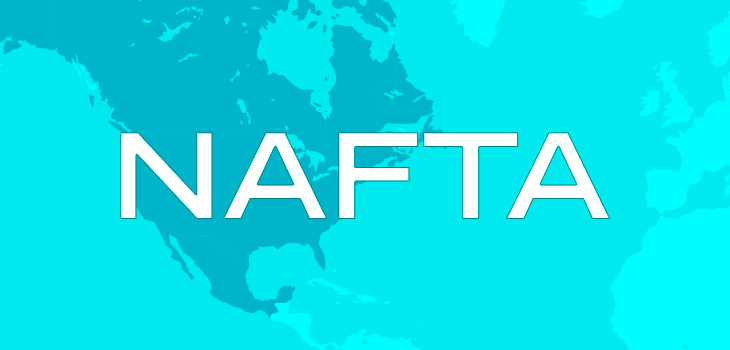
News
December 18, 2017
Do you have a plan B for offsetting the risks related to the NAFTA renegotiation?
The hot topic of the North American Free Trade Agreement (NAFTA) negotiations was the subject of a workshop at the International Business Leaders Forum held in Québec last November.

The stage was set by Raymond Bachand, Québec’s chief negotiator for NAFTA, who provided an overview of the situation prior to the workshop. “The subsidiaries of international companies established in Québec share a number of concerns. For subsidiaries doing business with the United States, one of those is very likely the uncertainty surrounding NAFTA,” he indicated.
Several subsidiaries consider that the current period of uncertainty could hinder or derail investments from their parent companies. Under the circumstances, several company heads like Juan Carlos Sanchez, Vice-President & General Manager, Electrical Wires Division at Nexans, argue that it would be risky to maintain the status quo. “We have to be pro-active,” he insists. “It’s the best way to deal with uncertainty and to reassure our parent company. Hope for the best, but be ready for the worst.”
Assessing the consequences
Nexans’ Montréal plant has pushed the preparations a little farther. “We export much of the copper wire rod we produce to the United States,” explained Sanchez. “For us, the risks related to potential NAFTA changes are very high.”
By late summer 2016, Sanchez and his team had started analyzing Democratic and Republican policies related to NAFTA. When the Republican government came into power, the parent company mandated Sanchez to carry out a more in-depth assessment of the risks for all Nexans companies in North America.
The same strategy was applied at Novas Bus and Prevost, two subsidiaries of the Swedish Volvo group. “We have been even more active since the fourth round of negotiations, when the United States proposed rather restrictive content regulations for our industry,” explained Emmanuelle Toussaint, Vice President, Legal, Regulatory and Public Affairs. “We set up a committee that prepared a contingency plan and identified some 15 different measures to introduce.”
Ready to act
After thoroughly reviewing the risks, the Nexans team developed a plan, consisting of five scenarios ranging from the best case, where NAFTA continues in its current form, to the worst, where World Trade Organization (WTO) tariffs would kick in once again.
For the Montréal Nexans plant, a return to WTO tariffs would signal the end of exports to the United States. In that case, a replacement would have to be found for that key partner. “If, as we assume, Canada imposed the same tariff on U.S. companies, the latter would no longer be able to sell to Canada,” noted Sanchez. “In that case, we could recover the part of the Canadian market that they now hold. Nonetheless, we would have to go through a period of significant cut-backs: that is our most pessimistic scenario.”
Between these two extremes, Nexans outlined some intermediate scenarios, one of which would see it process raw materials for U.S. customers. In that case, the subsidiary would not be subject to the tax on goods. “Each of our scenarios includes tangible actions that we are ready to implement,” specifies Sanchez.
Diversifying
If exporting to the United States is no longer an option, why not go with the new Comprehensive Economic and Trade Agreement (CETA)? That is exactly what Sanchez decided to do, by becoming a supplier to European plants in the Nexans group. “We're already working with a French sister plant on product certification,” he noted. “We are also preparing for tests with plants in Qatar and Norway.” In addition to diversifying its markets, the Montréal plant will expand its range of products. Major investments will be made starting next year in order to launch a new product that will be exported to Europe and Australia.”
In this way, Sanchez’ team is on the way to transforming a risk into a business opportunity. “Comfortably ensconced in the U.S. market under NAFTA, we did not think about diversifying,” he noted. “Uncertainty drove us to look beyond our comfort zone. Regardless of what happens with NAFTA, we will move forward with our plans. If the worst-case scenario materializes, we will be ready, and if it happens to be the best case scenario, then our projects will help us grow.”
Other
sites
Productivité innovation website (in French only)
Compétivert(in French only)









